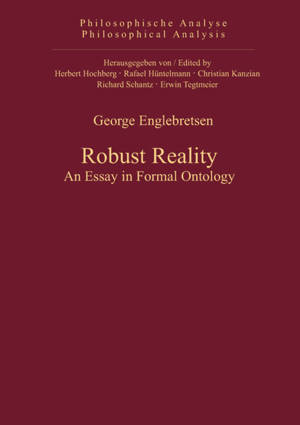
- Retrait gratuit dans votre magasin Club
- 7.000.000 titres dans notre catalogue
- Payer en toute sécurité
- Toujours un magasin près de chez vous
- Retrait gratuit dans votre magasin Club
- 7.000.0000 titres dans notre catalogue
- Payer en toute sécurité
- Toujours un magasin près de chez vous
Description
Contemporary analytic philosophy can generally be characterized by the following tendencies: commitment to first-order predicate logic as the only viable formal logic; rejection of correspondence theories of truth; a view of existence as something expressed by the existential quantifier; a metaphysics that doesn't give the world as a whole its due. This book seeks to offer an alternative analytic theory, one that provides a unified account of what there is, how we speak about it, the underlying logic of our language, how the truth of what we say is determined, and the central role of the real world in all of this. The result is a robust account of reality. The inspiration for many of the ideas that constitute this overall theory comes from such sources as Aristotle, Leibniz, Ryle, and Sommers.
Spécifications
Parties prenantes
- Auteur(s) :
- Editeur:
Contenu
- Nombre de pages :
- 197
- Langue:
- Anglais
- Collection :
- Tome:
- n° 46
Caractéristiques
- EAN:
- 9783110325126
- Date de parution :
- 15-12-11
- Format:
- Livre relié
- Format numérique:
- Genaaid
- Dimensions :
- 152 mm x 229 mm
- Poids :
- 539 g

Les avis
Nous publions uniquement les avis qui respectent les conditions requises. Consultez nos conditions pour les avis.






